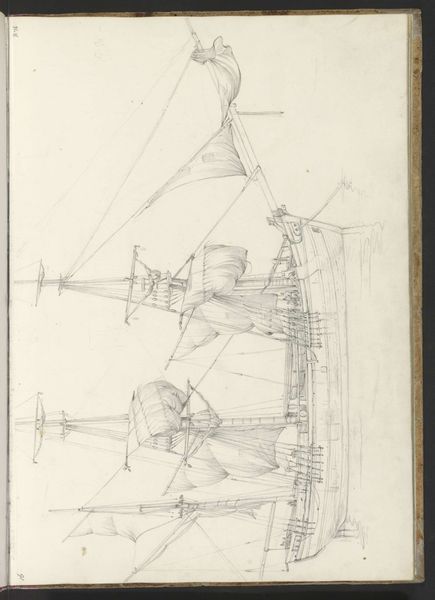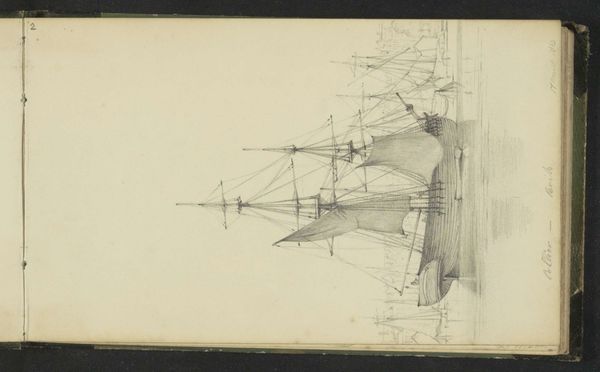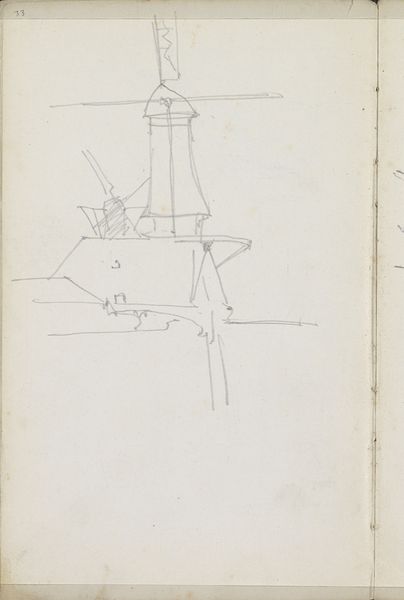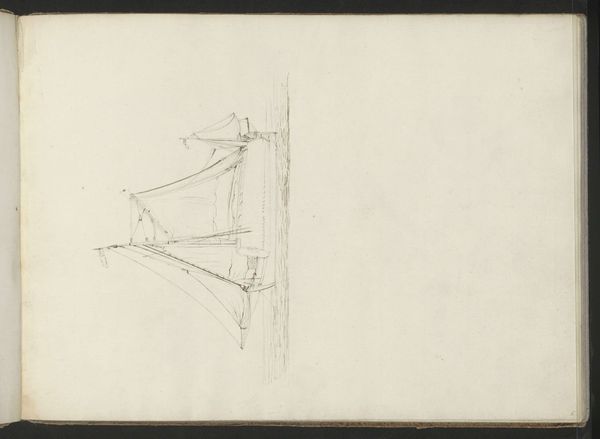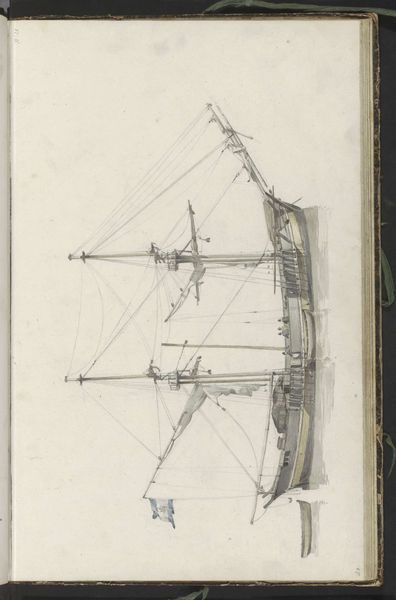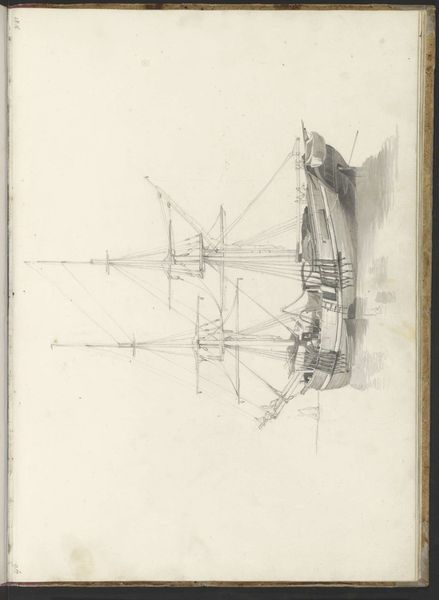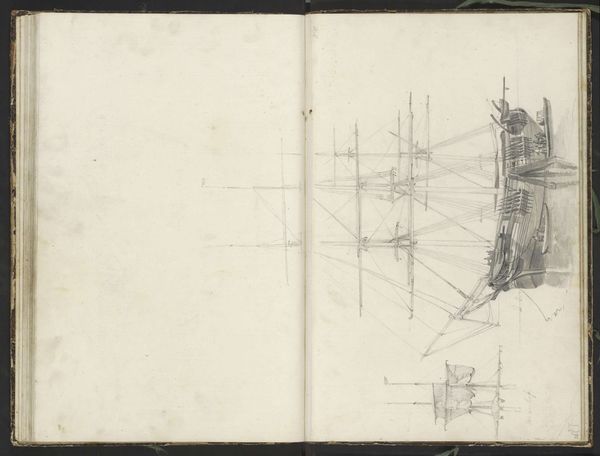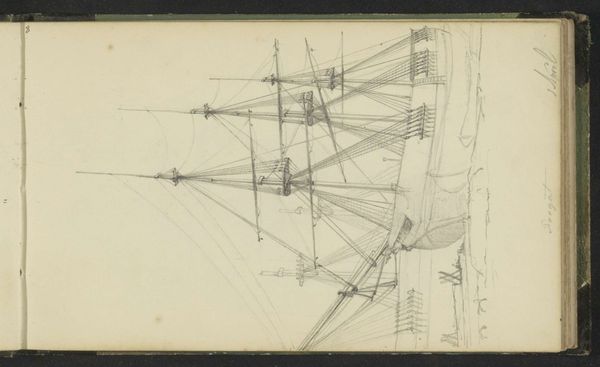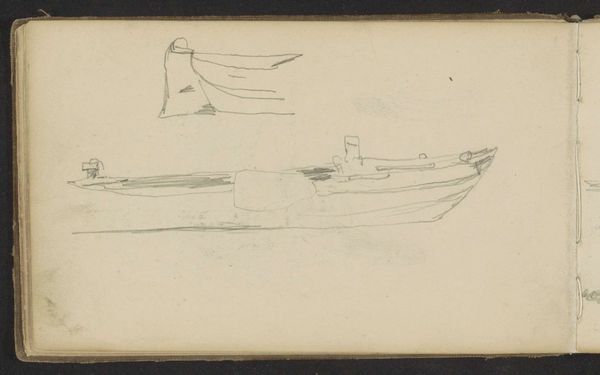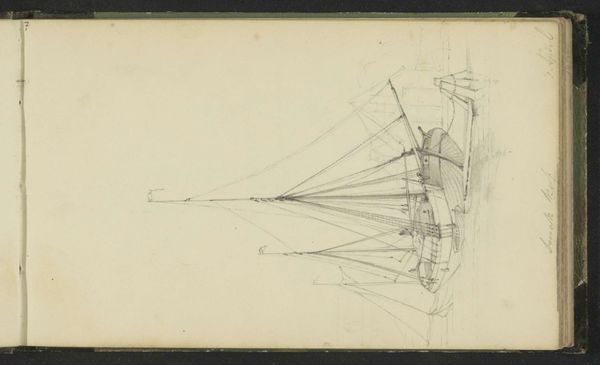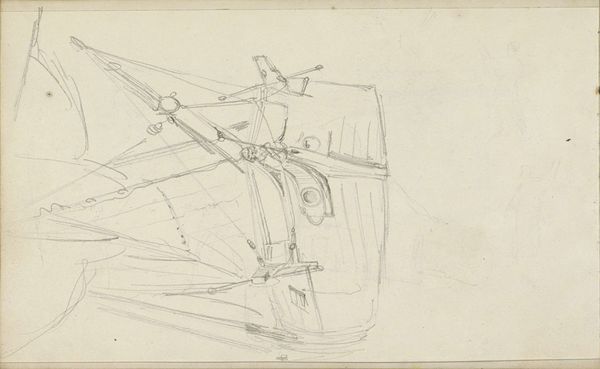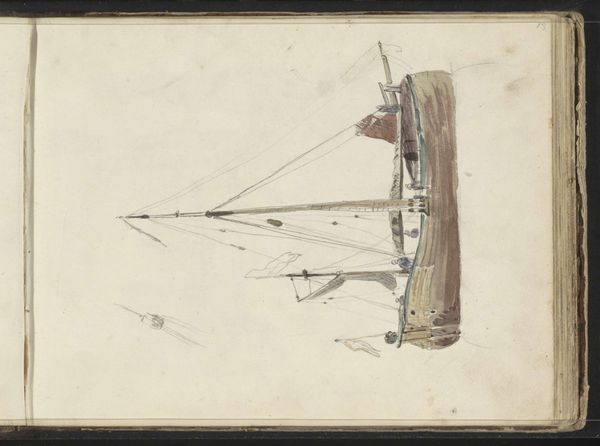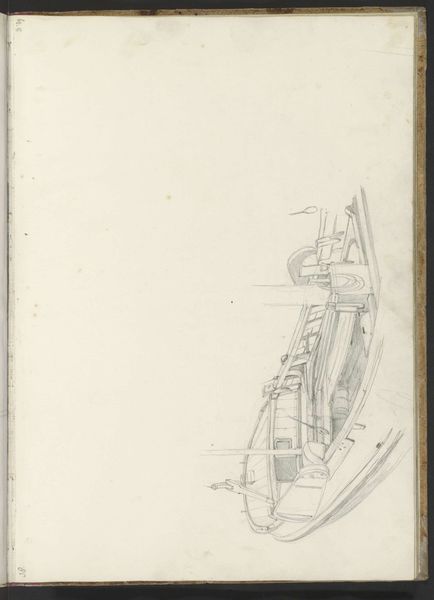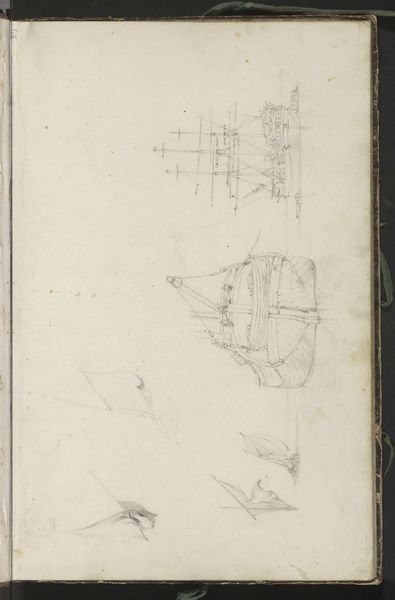
drawing, paper, pencil
#
drawing
#
narrative-art
#
landscape
#
paper
#
form
#
romanticism
#
pencil
#
line
#
realism
Copyright: Rijks Museum: Open Domain
Curator: This intriguing pencil drawing is titled "Tweemaster en houthaler," or "Two-Master and Wood Gatherer," and dates from between 1843 and 1848. Hendrik Abraham Klinkhamer is the artist behind this work. It currently resides here at the Rijksmuseum. Editor: There's a definite starkness to it. It's simple, almost diagrammatic, but evocative. The sparseness of the pencil on paper, focusing on skeletal shapes, is so telling. Curator: Absolutely. It captures the essence of maritime life, but beyond just the visual representation. It invites us to consider the social structures underpinning it. The title hints at the connection to the wood industry, itself entangled with colonial exploitation. Where did the wood come from? Who was laboring? Editor: I agree, and that’s subtly amplified through the artistic choice itself. Pencil drawings at this time could suggest an element of accessibility. Cheaper, easier to produce; almost democratic compared to oil or sculpture. Was Klinkhamer implicitly commenting on accessibility through his chosen medium? The availability of trade for everyone or the pretense that everyone benefits? Curator: It's definitely a pertinent point. We know romanticism leaned heavily on this notion, where nature was open and available to all. Was the access and opportunity genuinely distributed equitably at the time? Or, rather, only a small section of Dutch society. Editor: And that tension pulses through it. There's this airiness that belies its historical weight. Klinkhamer provides us an invitation to question these structures, as much as just represent the boats on paper. Curator: It is certainly food for thought, even today. The deceptively simple visual vocabulary encourages us to reflect on the intersections between industry, art, and the legacy of the past. Editor: Exactly. A quiet provocation that lingers long after you walk away.
Comments
No comments
Be the first to comment and join the conversation on the ultimate creative platform.
